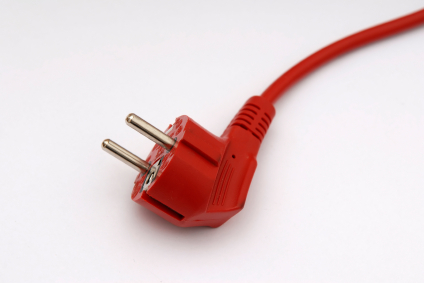While I’ve long known about the neurological benefits of meditation, it wasn’t until I watched Jill Bolte Taylor’s TED talk that I started thinking about how many of the benefits of meditation come from quieting the verbal part of our brains.
 To be honest, silence is not a state I naturally seek. I’m extroverted. I’m loud. I love parties and big families and people. And as an avid reader and professional writer, I tend to fear — not cultivate — a loss of words.
To be honest, silence is not a state I naturally seek. I’m extroverted. I’m loud. I love parties and big families and people. And as an avid reader and professional writer, I tend to fear — not cultivate — a loss of words.
But reading nobel prize-winner Daniel Kahneman’s new book Thinking, Fast and Slow got me (you guessed it) thinking a little more about this. That noisy verbal part of our brains is slow, processing only about 40 bits of information per second. The creative, intuitive, non-verbal brain processes about 11 million bits per second. Knowing this, I’ve been motivated to try and better harness the power of my non-verbal brain.
According to Martha Beck — Harvard sociologist turned life coach, and one of my personal heros — practicing what she calls “deep wordlessness” is just the ticket. Here’s what she writes about wordlessness in her most recent book Finding Your Way in a Wild New World:
To master Wordlessness…you must unlearn almost everything you were taught in school about what it means to be intelligent. The sharp focus you were told to sustain is actually a limiting, stressful, narrow attention field — something animals only using the the moment of ‘fight or flight.’ Dropping into Wordlessness moves the brain into its ‘rest and relax’ state.”
I’ve been practicing Beck’s techniques for cultivating worldlessness, and though it doesn’t come easily to me, I’m finding it well worth the effort.
Take Action: Beck’s book is loaded with literally dozens of techniques for activating our non-verbal brains. Even though the book is probably a little too woo-woo for most of my readers — it really challenges most of our Western assumptions about intelligence — it is also one of the most practical guides to happiness I’ve found.
The easiest of Beck’s practices for dropping into wordlessness (for me) is simply to follow your own bloodstream. You can try it by focusing your attention on your heart in the space between breaths: after you exhale deeply, pause your breathing and find the feeling of your heart beating. Take another breath while following the sensation of your heart beat. Once you’re following your heart beat, see if you can feel your circulatory system elsewhere, in your ears or toes or hands, your head and organs, or your entire body. Hang out for a while in this meditative state.
Join the discussion: What do you think?!
 Clean out a drawer today. (Perhaps that one that drives you crazy every time you open it?)
Clean out a drawer today. (Perhaps that one that drives you crazy every time you open it?)
 Research shows that gratitude is one of the most powerful — and efficient — ways to strengthen a romantic relationship (or any relationship, for that matter). Gratitude is relationship-strengthening because it requires us to see how we’ve been supported and cared for by other people.
Research shows that gratitude is one of the most powerful — and efficient — ways to strengthen a romantic relationship (or any relationship, for that matter). Gratitude is relationship-strengthening because it requires us to see how we’ve been supported and cared for by other people. Technology can be addictive, and it can change the core of who we are as people. Researchers believe that when we are over-connected to technology (including our email, the Internet, and our cell phones) we can become more impatient, impulsive, forgetful — and even more self-centered. These qualities do not make us happier people or better parents.
Technology can be addictive, and it can change the core of who we are as people. Researchers believe that when we are over-connected to technology (including our email, the Internet, and our cell phones) we can become more impatient, impulsive, forgetful — and even more self-centered. These qualities do not make us happier people or better parents.

 Last weekend I was at a fundraiser where several musicians were playing live. I was close enough to the guitar player, Jack, to be able to watch his expressions while I listened to him play. As I watched, I noticed myself grinning right along with Jack. He was totally in the moment, happiness flowing through him and his instrument, sheer bliss radiating from his face.
Last weekend I was at a fundraiser where several musicians were playing live. I was close enough to the guitar player, Jack, to be able to watch his expressions while I listened to him play. As I watched, I noticed myself grinning right along with Jack. He was totally in the moment, happiness flowing through him and his instrument, sheer bliss radiating from his face.
